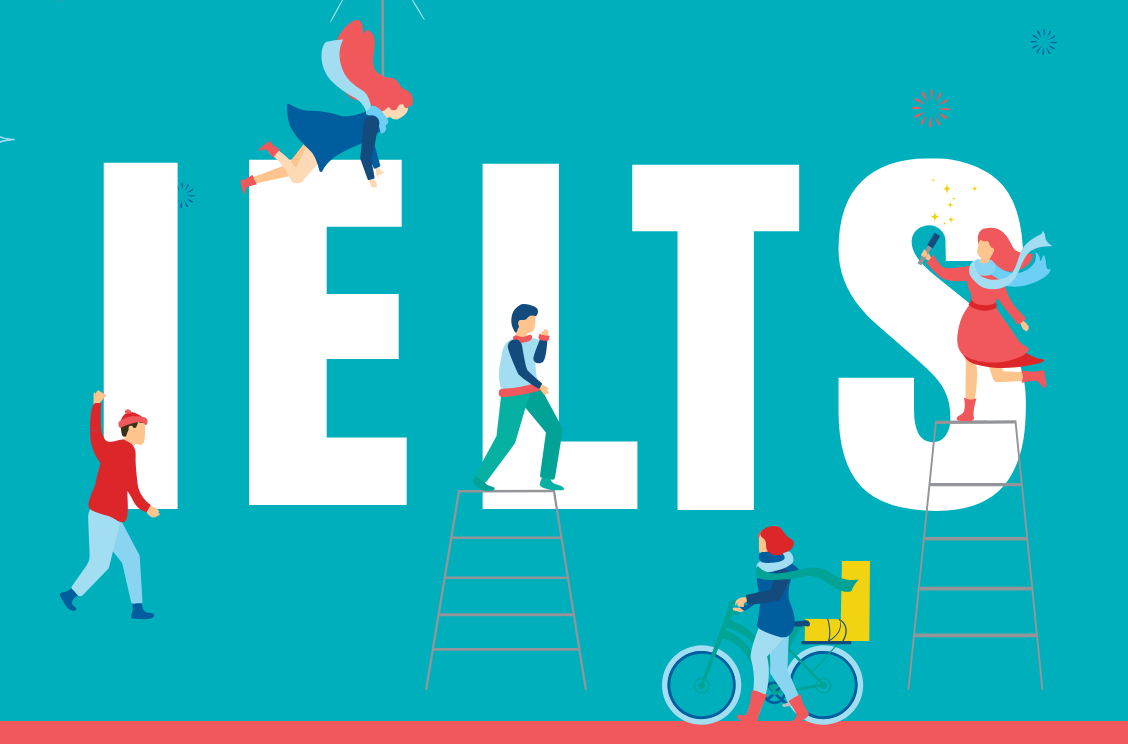
Over 3 million people around the world took the IELTS test last year. This staggering number suggests the popularity of the IELTS exam as an English language proficiency test globally.
But why exactly do so many people take this standardized exam? What does the IELTS seek to measure?
In this blog, we’ll cover everything you need to know about this high-stakes exam!
Table of Contents
IELTS Exam Overview | What is IELTS?
IELTS stands for International English Language Testing System. Simply put, the IELTS is a test of English language proficiency for non-native English language speakers.
The test can be taken by anybody looking to study, work or migrate to a primarily English-speaking country. Other tests of English proficiency include the TOEFL (primarily taken by students looking to study abroad), TOEIC (primarily taken to assess English language skills as required in the workplace), PTE:A, and OPI/OPIc.
Fast Facts about the IELTS Exam
Over 10,000 organizations in 100+ countries recognize and accept the IELTS results – including universities, employers and governments. Managed jointly by the British Council, IDP: IELTS Australia and Cambridge Assessment English, the test was first established in 1989.
[bctt tweet=”Fun Fact: If you want to study in the UK, you will be required to apply to a university using scores from a Secure English Language Test (SELT). The IELTS is currently the only SELT approved by the UK Home Office. Source: https://galvanizetestprep.com/ielts-blogs/what-is-ielts” username=”galvanizeprep”]
While the TOEFL Exam is another popular option available to students, it is not currently recognized by the UK Home Office as a SELT.
Like with most standardized tests, there is no official ‘passing mark’. You will be graded based on your skills and receive a report with results ranging from the lowest possible ‘Band 1’ (understood as a “non-user”) to the highest possible ‘Band 9’ (understood as an “expert-user”).
The IELTS is administered in two forms – as a computer-based test and a paper-based test. There is no difference between the two tests – the content, level of difficulty and format remain the same. You can choose between the two based on your what’s most convenient for you.
But that’s not the only choice you will have to make! Did you know there are two types of the IELTS exam? One is the Academic IELTS and the other is the General Training IELTS. Depending on your purpose, you’ll have to pick one of the two types. We’ve covered more about the two types later in the blog!
IELTS Exam Uses | Who accepts IELTS scores?
The IELTS aims to test your communicative and professional English levels. To do this, you’ll be tested on four skills – Writing, Reading, Listening and Speaking. These are the four ‘foundational’ skills you need in order to thrive in an English-speaking countries like USA, Canada or any other country. A notable feature of the IELTS test is that the ‘Speaking’ portion of the test is conducted separately, in the form of a one-on-one interview with the examiner.
The content for the test is developed by experts at Cambridge English Language Assessment with extensive research and inputs coming in from teams around the globe to ensure the test is fair; any biases detected are removed. So, regardless of where in the world you are from, the IELTS is not stacked against you. For these reasons, it’s one of the more popular English-language tests.
[bctt tweet=”IELTS scores are accepted in all English Speaking Countries and even in some non English Speaking countries like Belgium, France, Japan, Korea and more! Source: https://galvanizetestprep.com/ielts-blogs/what-is-ielts” username=”galvanizeprep”]
IELTS To Study Abroad
Want to study abroad? Thousands of universities across the globe will accept IELTS results as proof of your English proficiency. In fact, nearly 51% of all IELTS test-takers do it in order to secure admission to a university in an English-speaking country.
IELTS scores are accepted by universities in Australia, New Zealand, England, Ireland, Canada and over 3000 universities in the United States. Universities in non-English speaking countries such as Belgium, France, Japan, Korea (and more!) accept IELTS scores as well.
The level of proficiency required by universities will vary, but in general, top-ranked universities will ask for an IELTS band of 7 or higher for those pursuing higher education. For undergraduate study, an IELTS band of 6-7 is usually sufficient.
As you’ve already read in this blog, the TOEFL is another popular option among students looking to study abroad. But the IELTS is more widely accepted and in some cases (as with the UK) – it’s the only option.
[bctt tweet=”What’s a good IELTS score? IELTS band of 7 or higher is good Source : https://galvanizetestprep.com/ielts-blogs/what-is-ielts” username=””]
IELTS for Working Professionals
If you want to register to work in an English-speaking country, you will most likely need to take an English proficiency test. That’s where the IELTS comes in. Whether in a STEM field (including medicine, nursing, engineering, science), law or finance, most professional registration bodies accept IELTS scores.
It’s important to mention that score requirements for a professional will vary based on the standards the countries have set for different professions.
For example, if you are a skilled emigrant looking to move to New Zealand, you would need a minimum IELTS score of 6.5 band. (This figure might be lower if you meet certain other requirements, but to be on the safer side, you should aim for a Band 6.5).
On the other hand, if your profession falls in a ‘Business category’ (for instance, if you’re an investor or an entrepreneur), you only need an IELTS score of a Band 5.0 to move to New Zealand.
Depending on the country you’re moving to as well as your area of profession, the minimum score requirement will vary.
IELTS For Migration to a Commonwealth Country
Most universities and professional organizations in Australia, UK, Canada, USA and New Zealand ask for IELTS scores as a requirement for different types of visas (Skilled Migrant, Investor and Entrepreneur, Residence from Work, Permanent residency, Parent etc).
Depending on your profile, you might need to take the IELTS General Training test. It’s the only non-academic test of English proficiency available to people looking to immigrate. If you’re unsure of which test to take, a quick look at the immigration website should tell you what you need to know.
3. What are the types of IELTS tests?
A lot of people are surprised when they hear there are TWO types of IELTS tests. One is the Academic IELTS and the other is the General Training IELTS.
[bctt tweet=”IELTS exam has two types : 1) Academic IELTS (Academic and Professional advancement) 2) General Training IELTS (Secondary Education, work Exp & training)” username=”galvanizeprep”]
IELTS Academic Test
Who should take the IELTS Academic Test? People looking to pursue their higher education at a university in an English-speaking country.
The Academic IELTS is typically considered the more difficult test because it tests your analytical and critical thinking skills appropriate for university-level learners. The content for the Reading and Writing Sections will be chosen accordingly – from books, journals, magazines and newspapers.
IELTS General Training Test
Who is the IELTS General Training test for? People looking for work experience, to participate in specialized training programs or for secondary education take this test. It might also be a requirement for anybody looking to emigrate.
The General Training IELTS tests only your ability to comprehend and communicate well enough to survive in a new environment. You’ll be given extracts from books, magazines, newspapers, notices, advertisements, company handbooks and guidelines – the kind of material you’re likely to encounter on a regular basis.
Do both follow the same exam pattern?
Both tests have the same 4 sections – Reading, Writing, Listening and Speaking. The Listening and Speaking sections remain the same for both types of tests – but the content of the Reading and Writing Sections will differ based on the test you take.
4. How many times is the IELTS test
conducted in a year ?
This is a good question. The (Computer-based) IELTS Academic Test is conducted (jointly by the British Council and IDP) up to 7 days a week, 3 times a day –morning, afternoon and evening! Clearly, you now have plenty of options to choose from!
If you want to take the paper based test, they are conducted at least twice a month (usually 4 times a month). This number may be higher but it’s very unlikely to be lower. 48 times a year. That works out to be nearly once every week. However, not every center will offer the test 48 times a year.
So while choosing the IELTS exam date, you will have to be mindful of the fact that your preferred exam centre may not be conducting the exam on that date. You can take either the paper test or the computer-based test at the official IELTS test centers.
The General Training test, on the other hand, is conducted 24 times a year.
IELTS Exam Registration | How to register for IELTS exam?
You have a couple of options when it comes to registering for the IELTS test.
Registering on the British Council Webpage – Online
1. Using the ‘online payment’ option
-
- Check the availability (British Council IELTS dates) and select your preferred date (you will need to select a separate test date for your Speaking test).
- Create an account with the British Council.
- Book and pay.
In order to be able to do this, you will need:
- An identification document (a valid passport is your best, and sometimes, only option). Make sure you have a photocopy or a photo of the identification document at hand, as you will need to upload this as part of the booking process.
- A payment card (if you wish to pay online). You also have the option of paying via Demand Draft or cash at certain banks but an online payment is the easiest method. If you choose to pay offline, there are additional steps you must complete for a successful registration.
Registering on the British Council Webpage – through post/courier
- Download the IELTS registration form.
- Pick your preferred test-date and then complete the application by entering required details
- Pay by demand draft or by cash (To pay by cash visit the nearest ICICI bank with the ICICI payment slip)
- On the registration form, please provide a Blue Dart courier serviceable address. This is so the IELTS study book and TRF can be sent to you.
Choose how you want to make the payment:
- Cash (make cash payment at any ICICI bank branch by filling in the ICICI deposit slip)
- Demand Draft (in favour of ‘British Council’, payable at New Delhi)
Send in your documents:
Candidates who apply using the online application form and are paying by ICICI deposit slip or demand draft must:
- Scan the ICICI deposit slip and upload it in the candidate area or send it via courier.
- Send the DD via courier.
IDP IELTS Registration Processes
Note: IDP IELTS dates are the same dates as those you will find on the British Council website.
Option 1: Register Online. Make the payment via Netbanking, Debit/Credit card or PayTM
Option 2: Visit your nearest IDP branch to book it offline.
Here’s how:
- Visit the IDP IELTS Login page for India.
- Select the option ‘Register for Test.’
- Choose the test you’d like to take – computer/paper-based (IELTS, IELTS for UKVI or Life Skills).
- Select your test type/module (choose carefully) – Academic or General Training for IELTS, IELTS for UKVI, A1 and B1 for Life Skills
- Pick your preferred IELTS test centre
- Once done, you will find a list of dates available for your preferences. Select your desired IELTS test date and time slot.
- Enter the required details and complete your online application. You will be asked to upload a clear, scanned colour copy of your passport to complete the process.
- Proceed to pay the test fee.
- Upon booking your test date, you will receive an acknowledgment on your registered email/phone number.
- Note: For the Speaking module of the test, you can book a slot online on your preferred date and time. If you fail to do so within the slated time period, a time slot will be automatically allocated to you.
If online registration is not something you want to do, you may register in person at the nearest IDP IELTS branch or Referral Partner.
Documents required at the time of the IELTS exam registration include a photocopy of your passport ID (front and back page) and the signed & dated declaration document.
IELTS Exam Fee | What is the IELTS Exam Fee?
For those of you deciding whether or not taking the IELTS test is the right decision, you will naturally factor in the cost of the test. The IELTS (like most standardized tests) isn’t inexpensive.
Depending on where you’re from, the cost may vary a little. Most IELTS test centres charge about $225 to take the test. But this fee might be a little higher or a little lower, based on the test centre.
In India, you can expect to pay INR 13,250 as the IELTS exam fee. This is the fee for both the computer-delivered as well as the paper-based test.
[bctt tweet=”IELTS Test cost : Can be around 13,000-14,000 INR” username=”galvanizeprep”]
| Test Type | Cost |
|---|---|
| Computer-delivered IELTS | INR 13250 |
| Pen-and-paper based IELTS | INR 13250 |
| IELTS for UKVI | INR 18500 |
| Life Skills | INR 13850 |
What is the IELTS exam pattern?
The IELTS Exam Pattern is pretty straightforward – there are 4 sections on the test, each with varying number and types of questions.
IELTS Exam Sections:
The four sections you will encounter are –
- Reading Section
- Writing Section
- Listening Section
- Speaking Section.
These are considered the four ‘foundational skills’ of a language, and that is why you are tested on each of these skills.
Test-takers should know that the Reading, Writing and Listening sections are tested together, on a single day. The Speaking Section could be taken up to 7 days before or after your chosen test day OR on the same day along with the other sections. You are offered this flexibility.
IELTS Exam Duration
For the IELTS Academic test, the total duration is about 2 hours and 45 minutes.
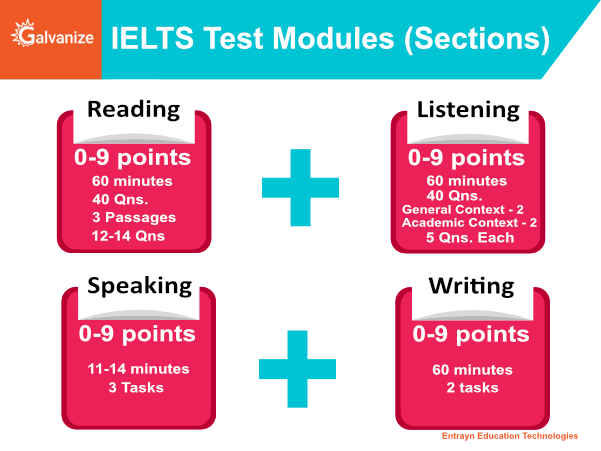
IETS Exam Syllabus/Pattern/Format
The question types across sections on the test vary quite a bit. So let’s look at the IELTS Syllabus for each section.
IETS Reading Section
On the Reading Section, you will be required to parse through three texts of general interest (relevant and appropriate for candidates entering postgraduate or undergraduate courses) and then answer 40 questions. Question types vary and include multiple-choice, identifying data for short-answer questions, sentence or summary completion, matching lists or phrases, and identifying writers’ views/attitudes.
What do they test?
They aim to test your ability to understand academic reading material written in English.
IELTS Listening Section
The Listening section is divided into four activities: the first two conversations are concerned with social needs and the last two are concerned with situations more closely related to education.
All conversations are typically three minutes long. They could be either monologues or dialogues. A variety of question types are asked, like multiple-choice, short-answer questions, note completion, sentence completion, labeling a diagram, etc.
Note: You can only listen to these audio clips once!

Sections 1 and 2 are about everyday, social situations.
- Recording 1: The first audio clip is usually a conversation between two people set in an everyday social context.
- Recording 2: The second audio clip is usually a monologue set in an everyday social context.
Sections 3 and 4 are about educational and training situations
- Recording 3: This audio clip will be of a conversation between four people set in an educational or training context.
- Recording 4: The final audio clip will be a monologue on an academic subject, like a classroom lecture.
IELTS Writing Section
All IELTS test-takers will be required to write two short essays directed at an educated but non-specialist audience.
For the first essay, test-takers are asked to look at a diagram, table or data and to present the information in their own words in 150 words.
The second essay works differently – a point of view, argument or problem will be put forth, and you will be asked to provide general factual information, present a solution, justify an opinion, evaluate ideas and evidence in less than 250 words.
As we mentioned earlier, the tasks are NOT the same across the IELTS Academic and IELTS General Training tests.
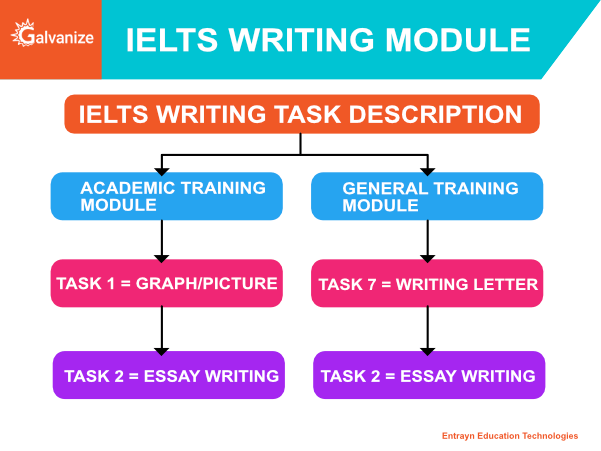
Writing Module for the IELTS Academic Test
For the IELTS Academic Test, you will be given two tasks where you will be asked to write on topics that are of general interest and relevant to the candidates applying to study (whether at the undergraduate or postgraduate level).
The first task will require you to look at a diagram, table or graph and summarize what you deduce from the data in your own words. You may be given a specific task – such as explaining certain data or processing the information or flowchart to reach a specific conclusion.
The second task will require you to elaborate (in the form of an essay) on your deductions from Task 1 and support your deductions with relevant evidence picked from the information provided. Both tasks seek to test your critical thinking skills and so the style of writing should be strictly formal.
Writing Module for the IELTS General Training Test:
The Writing section for the IELTS General Training test is much simpler than that of the IELTS Academic test.
First, you will be required to write a letter (formal or semi-formal) based on a particular situation. The intent of the letter could be to explain, support your argument to a certain authority or request for something.
For the second task, you will be asked to draft an essay based on the views or arguments you espoused in the letter above, pointing out relevant instances. For this, the writing style can be a bit personal.
IELTS Speaking Section
The aim of this section is very simple – it seeks to assess whether test-takers have the requisite skills to communicate effectively in English with native-English speakers. This module is structured like an interview. The entire exercise should not last more than 15 minutes.
Part 1: Introduction and Interview (4–5 minutes)
For the first part, you will be asked basic questions about yourself – including questions about your family, studies, hobbies, interests, and so on.
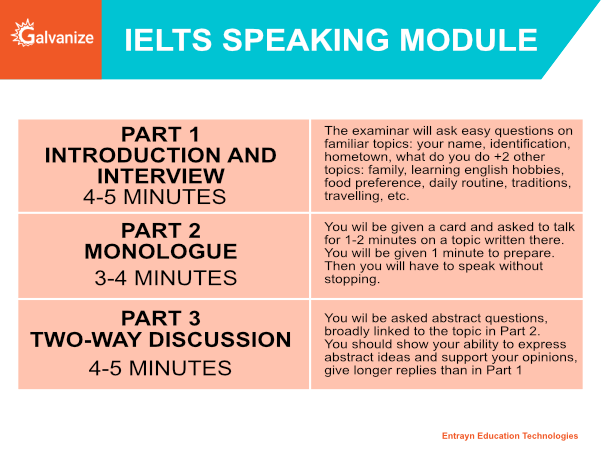
Part 2: Long turn (2–3 minutes)
For the second part, the examiner will hand you a flashcard containing a certain topic. You will then be given a minute or two to collect and organize your thoughts post which you need to talk for about two minutes. After that, the examiner might ask a few questions based on your understanding of the topic.
Part 3: Discussions (5–6 minutes)
Based on your speech from Part 2, deeper questions and abstract discussions will follow to test the depth of your understanding of the topic you have just spoken about. This will go on for about 5-6 minutes.
IELTS Score Validity | How long is the IELTS score valid?
IELTS Results
The IELTS Score report (a.k.a Test Report Form) will be available to you about 13 days after you take the test. This Test Report Form will include a breakdown of your performance across all 4 test modules (Reading, Listening, Writing and Speaking). It will also include the average of your scores across modules which is your overall Band Score.
IELTS Score Validity
This report is valid for two years. Universities generally do not accept scores that are older than 2 years.
So, the IELTS score validity is 2 years!
Summary:
- IELTS full form : International English Language Testing System
- The IELTS is currently the only SELT approved by the UK Home Office. ( For UK Universities)
- IELTS Results ranges from band 1 – band 9
- IELTS exam can be taken by two means : Computer based and paper based test
- IELTS scores are accepted in all English Speaking Countries and even in some non English Speaking countries like Belgium, France, Japan, Korea and more!
- Even working professionals would have to take the IELTS test
- What’s a good IELTS score? IELTS band of 7 or higher is good
- IELTS exam has two types : Academic IELTS and General Training IELTS
- IELTS Academic : For educational advancement and professional advancement
- IELTS General Test : Secondary Education, Work experience, Work training and migration to english speaking countries
- IELTS Computer based test : Conducted thrice every single day
- IELTS Paper Based Test : Conducted 2-4 times a month
- IELTS Test cost : Can be around 13,000-14,000 INR
- IELTS Test Duration : 2 hours 45 minutes
- IELTS Exam Pattern: There’s Reading, Writing, Listening and Speaking Sections
- Reading, Writing and Listening sections are tested together
- IELTS Reading Section : 0-9 Points,60 minutes, 40 Qs, 3 Passages, 12-14 Questions
- IELTS Writing Section : 0-9 Points,60 minutes, 40 Qs, 5 Questions each
- IELTS listening Section : 0-9 Points, 11-14 minutes, 3 tasks
- IELTS Speaking Section : 0-9 Points,60 minutes, 2 tasks
9. Why IELTS Practice Tests are Vital?
It would be prudent for all Academic IELTS students to take multiple practice tests. IELTS Prep with Galvanize ensures students are well accustomed to the IELTS Academic test pattern, sectional time limits, and the variety of questions asked. Here are some reasons why one must not miss a chance to practice the IELTS.
👉 Assess your Ability – Taking a practice test would show you where you stand. In fact, based on your score you can focus on sections that you feel are hard. Galvanize IELTS Prep will see to that you go back and strengthen your weak sections and then take practice tests again to gain more confidence in your test-taking ability. The IELTS as you may already know is scored between the bands 0 to 9. Most universities would require at least 6.0 or more and some depending on the course may demand a 7.0 and plus.
👉 Time Management – The IELTS Academic test has four sections of varying length. Reading (30 mins), Writing ( 30 mins), Speaking ( 15 minutes), Listening (30 mins). Depending on your proficiency, your testing time will vary for each section. This is furthermore a reason for enrolling in IELTS practice tests. It is crucial for all IELTS test-takers to allocate their time wisely. Practice tests will give you a preview of answering questions in a timed fashion. Such a methodology will guarantee you don’t run out of time on the actual test.
👉 Question Types – Attempting IELTS sample exams will enhance your familiarity with questions and their formats. For example, the listening section will have a monologue recording and a conversational type recording. The reading section will have a wide variety of question types such as identifying information, matching claims, etc. The better acquainted a student is with the test and its questions, the easier it will be for you to navigate them and choose the right answer.
I am sure it is clear to you as to why practice exams hold such an important place in the test preparation scheme. Galvanize ensures students give the required number of practice IELTS exams before they sit for their actual test. The more tests you practice, the better scores you can bag!
10. Key Tips to Crack the IELTS
Since IELTS is an examination comprising of individual sections. A student must master all the sections and score equivalently well in all or most of the sections to get a good band score.
Reading
- Students will be given 3 reading passages along with 40 questions in total to be answered in a separate answer sheet. The student will be given 60 minutes to complete the reading section of the test.
- Questions will contain a wide variety of styles such as matching information, finding main ideas, sentence completion, flow chart identification, summary, short answer questions, etc.
- Students must answer to the point and also be mindful of spelling and grammar.
- Reread the questions to make sure you have understood them correctly. Grasping the question correctly is more than half the work done. Come back to a question after if you are struggling with it.
- Explore the passages to make sure you have recognized their gist, salient points, and other notable features. This mental road map will make it easier to identify the answers.
- Write down the answers directly on the answer sheet. Taking notes/writing down the answers in the question paper of the reading section will only lengthen your answering time.
Writing
- Students will need to allocate their time of 60 minutes between 2 questions.
- The first question will need you to respond to a diagram/graph/chart and explain the same in words. The next task will involve answering a general argument/policy and either justifying or opposing the view presented in the question.
- Ideally, 20 minutes for task 1 and 40 minutes for task 2 would be sufficient.
- Test takers are required to respond a minimum of 150 words for task 1 and 250 words for task 2.
- A formal style of essay writing is recommended. The passages should have a logical flow of arguments and justification. Also, bullet points are to be avoided. Task 2 will need an introduction, body, and conclusion format. Students must remember not to repeat arguments/ideas/words in their writing.
- Use of language along with proper grammar, spellings, vocabulary, and narrative follow will be gauged for awarding points. Logical connectors, conjunctions, and pronoun utilization will be expected
- Keep a minimum of 5 minutes for revision and proofreading both your responses for tasks 1 and 2.
Listening
- There will be 4 parts (for the 4 audio recordings) with 10 questions each. Test takers can write down the answers as they listen to audio. Then in the last 10 minutes copy them to the answer sheet.
- A quick read-through of the questions before the start of the recording will be beneficial.
- Listen very mindfully and make notes in the question paper as required.
- Be very careful with the spelling and grammar of the answers written down in the sheet. Mistakes will be penalized.
Speaking
- This section lasts between 11 to 14 minutes. Students must ensure they are able to communicate clearly to the examiner.
- IELTS lays emphasis on enunciation. The accent is not important, the IELTS examiner must be able to understand what you are trying to convey.
- Grammatical accuracy and variety in the vocabulary will also be used as indicators of proficiency in speaking.
FAQs( Frequently Asked Questions):
What is the full form of IELTS?
International English Language Testing System
What is IELTS score range?
- IELTS Results ranges from band 1 – band 9
What is a good IELTS score?
- IELTS score band of 7 and higher is generally considered as a good IELTS score
What are the types of IELTS exams?
- Academic IELTS and General Training IELTS
How often is IELTS conducted?
- IELTS Computer based test : Conducted thrice every single day
- IELTS Paper Based Test : Conducted 2-4 times a month
What is the IELTS test duration?
- IELTS Test Duration : 2 hours 45 minutes
What is IELTS test cost?
- IELTS Test cost : Can be around 13,000-14,000 INR
What is the passing score for IELTS?
- There are no passing scores for IELTS. The test results ranges from band 1 – band 9 and different institutions would have different cut-off scores for that year’s intake. The people who haven’t attended IELTS would get “band 0”.
What is the IELTS exam eligibility?
One needs to be above the age of 16 and have a valid passport to be eligible to write the IELTS exam.
Which is the best time to take the IELTS exam?
The IELTS speaking topics might change every 4 months. For this reason it’s important to track the topics and prepare accordingly. So based on this we could say that the best time to take IELTS could be end of December, April, August.
Can I pass IELTS without coaching?
Yes, the honest truth is, if you have good quality materials and enough practice and experience with the type of question asked , then yes anyone can get a good band score in IELTS
What is the syllabus for IELTS?
IELTS as 4 sections : Reading, Writing, Listening and Speaking Sections. Reading, Writing and Listening sections are tested together
Other Useful Links:
- Canada Express Entry Guide
- Get Profile Evaluation For Free By An Alumna Of University of New Mexico, USA
- [Galvanize Premier Videos] Watch top-notch videos related to word-learning for tests like the IELTS and GRE!
- IELTS Practice Test : Get Your Free Practice Test With Score Analysis
- IELTS Exam Plan : Get Your Dream Score









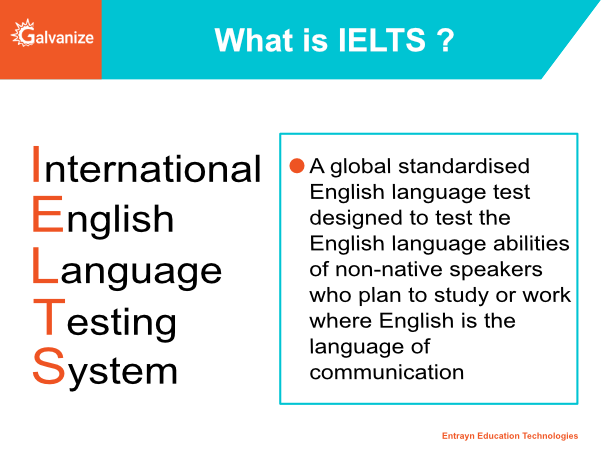

![IELTS test types | Academic test [Educational and Professional] and General test [Work experience and training]](https://galvanizetestprep.com/wp-content/uploads/2019/11/blog-6-1.png)
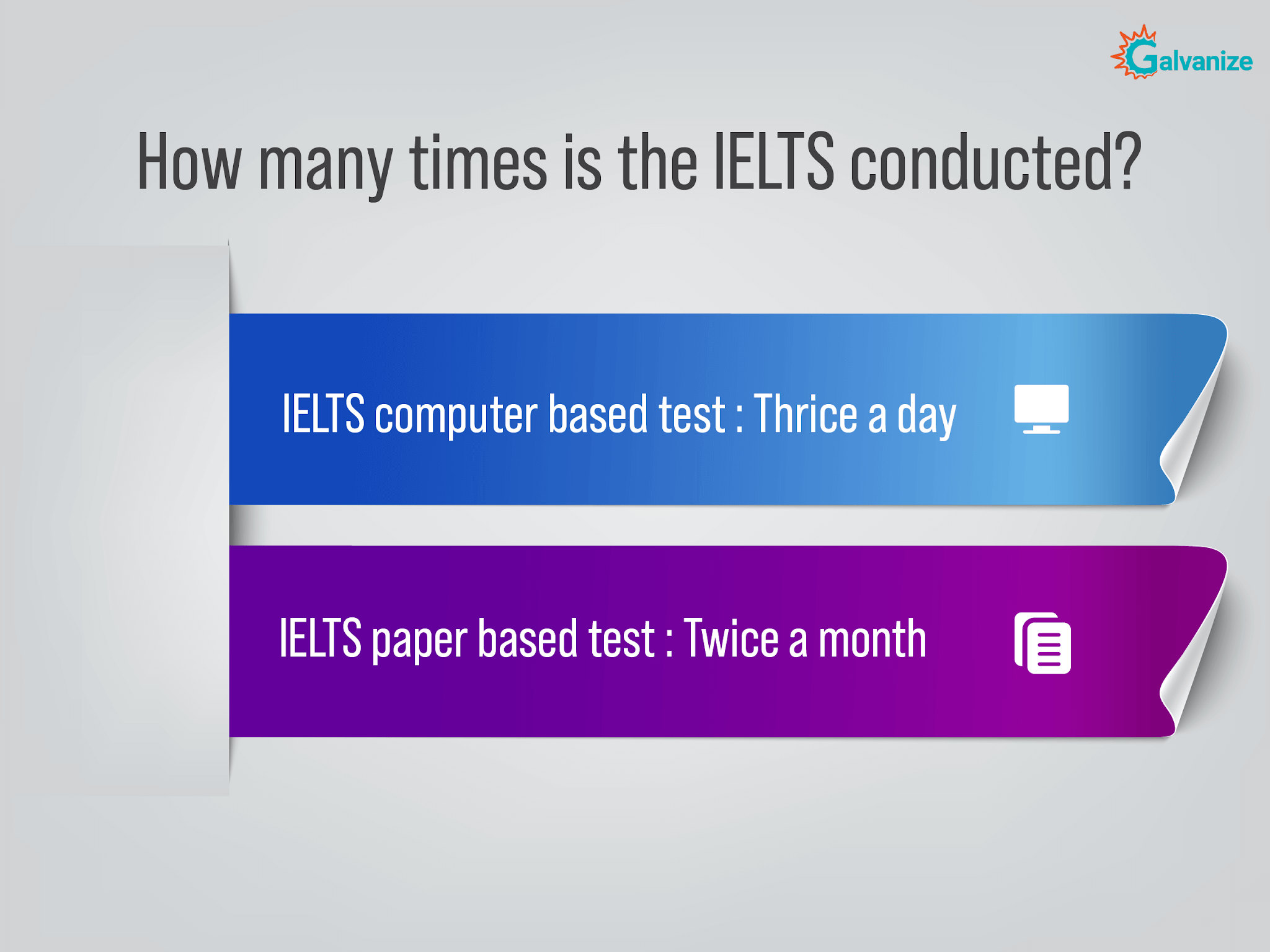
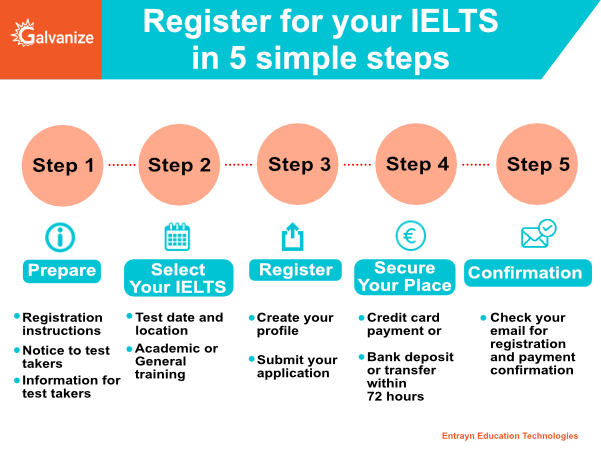
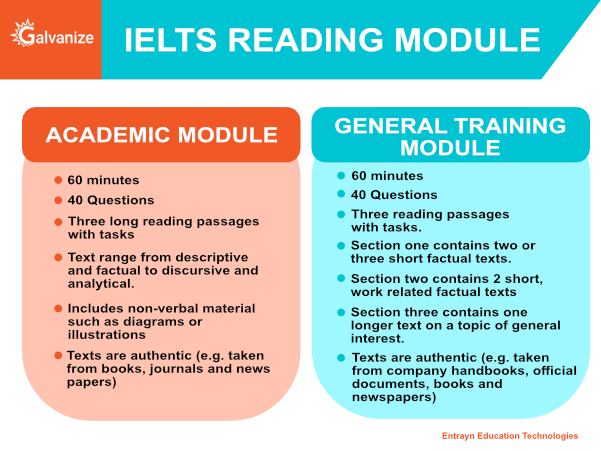







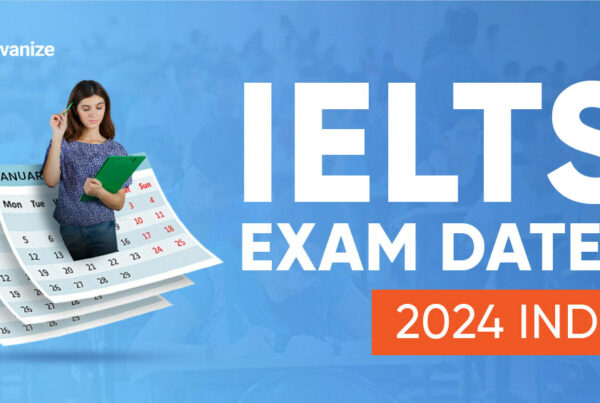
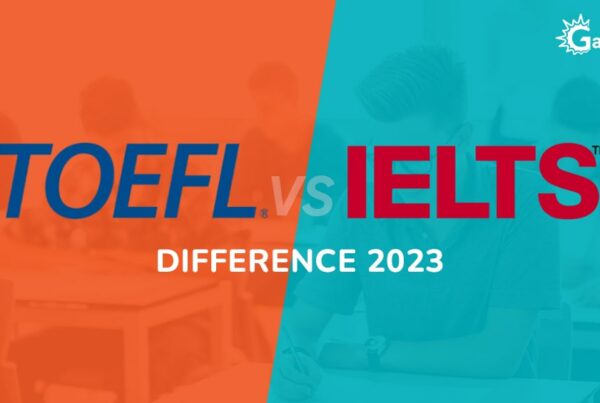

Thank You and once again Thank You!
Amazing information on IELTS, I really very happy after reading this article each and every my dought now clear. I suggest to every one please download the article and read anywhere any time
Have a Good day!
nice information…i dont known what to choose between academic and general now after reading this im well aware what to choose
thank you
Thanks for sharing the blog as it is quite informative and helpful
Incredible information…. Exactly what are needed..
Why Canada is removed from the article?
Thanks for helping me out with these information …really helpful
Really it is very informative,, tnk u so much
Dear Sir/Madam, May I will be admitted to the given Universities in my PhD program in field of food engineering if I will not succeeded very well the IELTS score please?
Dear Sir/Madam, May I will be admitted to the given Universities in my PhD program in field of food engineering if I will not succeeded very well the IELTS score please?
Thank for this valuable blog, it is highly useful
Such a comprehensive resource for IELTS examination.
Very enlightening.
Thanks for such an informative blog. It was really useful. In case, if you need more information, you can refer to our website.
This detailed guide is very helpful.